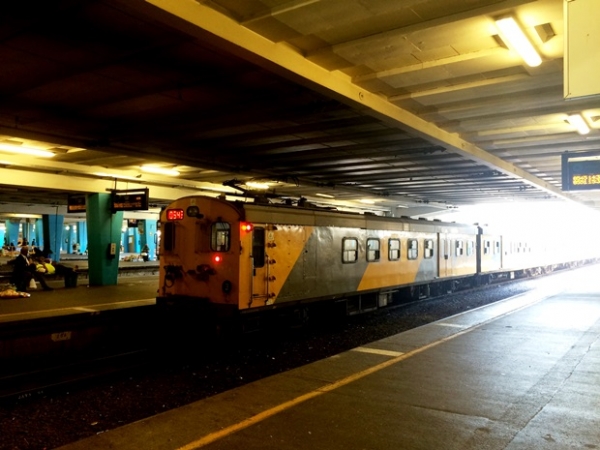No buses for stranded Metrorail passengers

Every weekday morning, Kungile Mzwakadi, a 48-year-old security guard working in the city centre, takes the 5:20am train from Langa to Cape Town. For his journey to and from work, Mzwakadi spends R150 on a monthly train ticket.
On a good day, the trip often takes less than 25 minutes, so that he is at work before his 6am starting time.
But, like many of the 635,000 passengers who use Metrorail to cross the city daily, Mzwakadi sometimes finds himself stuck mid-way through the journey as the train comes to a standstill - often without any explanation from Metrorail.
“The train stops without us knowing what’s going on. If it gets stuck between Ysterplaat and Esplanade, I have to walk back to Ysterplaat to wait for another train or walk the rest of the distance to town,” says Mzwakadi.
In cities like Toronto, London and Auckland, rail authorities have replacement buses on standby near train stations to ensure that commuters get to their destination when there are interruptions or delays.
In Auckland, a city with a population of just under 1.5 million people, rail buses pick up commuters from bus stops, which are located close to the city’s 38 train stations when trains experience technical failures.
But, says Riana Scott, Metrorail’s spokesperson for the Western Cape region, Metrorail only has access to 18 standby buses, four of which are used as replacements for trains between Fish Hoek and Simon’s Town.
Asked why more buses could not be made available, she said a single train had a capacity of 800 to 2,000 people, depending on the number of carriages, but a bus could take only 75 passengers. This meant that Metrorail would need at least 13 buses for every train with a capacity of 1,000 passengers.
Even if only 10% of these trains were to be replaced by buses, she said, this would mean 975 buses.
“Each bus will require a driver and will need to duplicate the route of the train it replaces.” Scott said this would be impossible to implement even if Metrorail had access to more buses and drivers.
Professor Ivan Turok, a researcher in urban planning and economic development at the Human Sciences Research Council (HSRC), does not agree.
Turok, who is also a regular Metrorail commuter, believes that replacement buses are the solution.
“Metrorail should improve communication to explain how long the delay is likely to be, and organise back-up buses if the delay is going to be more than 20 minutes or so. I don’t believe there are generally over 800 passengers on each train. That is just a feeble excuse. I have been on trains that have broken down after dark in the middle of nowhere,” says Turok.
Waiting for another train at a nearby station is often not a solution, he says.
“The problem is often that the train blocks the line, or the signals have broken down, so waiting for another train isn’t much good. Buses are generally the answer.” Rory Williams, a transport planner and co-founder of Open Streets Cape Town, says Metrorail should plan better for trains getting stuck on the way.
“It is generally true that you would need a lot of buses to meet the demand of train passengers. If Metrorail cannot provide that, then the question is how do we make alternatives more readily available to stranded passengers?” He says the answer is to decrease dependency on trains and improve complementary forms of transport such as the MyCiTi and Golden Arrow buses and the minibus taxi system.
The City of Cape Town’s Mayoral Committee member for transport Brett Herron, says the City is working towards integrated transport with a single network and ticketing system.
This would allow commuters to use different forms of transport over a single journey and pay one fare.
The City has submitted two applications to national government, he says. The first is an application to manage Metrorail trains, which are currently managed by the Passenger Railway Agency of South Africa (PRASA). The second is an application for the City to become the contracting authority of the Golden Arrow Bus services instead of the provincial government. Golden Arrow is a private company, but receives a government subsidy.
As contracting authority the City would have the right to issue operating licences and align bus routes with its integrated transport plans.
The City has not received any response from the minister of transport on these applications, says Herron.
Support independent journalism
Donate using Payfast

Don't miss out on the latest news
We respect your privacy, and promise we won't spam you.

This article is licensed under a Creative Commons Attribution-NoDerivatives 4.0 International License.
